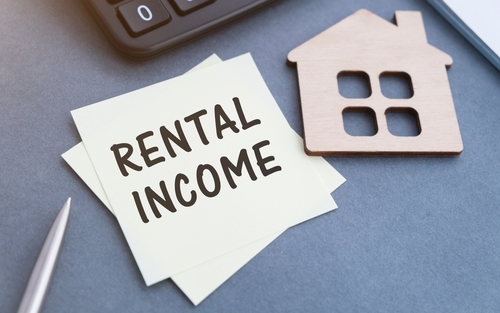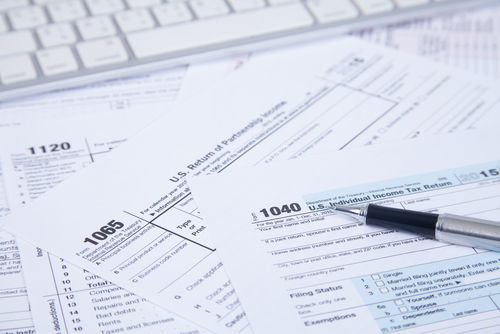
When you are a rental property owner, it’s essential to keep updated with your tax responsibilities. Real estate investors are expected to report their total rental revenue on their tax returns at the end of each year. During this time, investors must declare all payments they receive from tenants as rental revenue. From there, property renting expenses may be deducted from the total gross income.
If you are starting in the rental property business and need help determining what falls under the category of rental revenue, we’ve got you covered. Continue reading to learn about rental property income, how to report it, possible tax breaks, and efficiently keep up with accounting matters.
What is Rental Property Income?
When you file your taxes for the year, you must include all amounts you received as rent in your gross income. According to the IRS, rental property income can be defined as any payment you receive for the use or occupation of the property. Additionally, if you have more than one property, you must report rental revenue for each one.
However, monthly rental payments may not be the only income you should include while doing your taxes. Since you must report all forms of rental revenue, it may consist of other payments. While filing your taxes for the year, make sure to report income such as:
- Advance Rental Payments
- Security Deposits
- Canceled Lease Payment
- Tenant Paid Expenses
- Property or Services Received
- Lease-to-Buy Payments
- Partial Ownership
Advanced Rental Payments
Rent paid in advance is any amount of money you receive before the period it covers. This includes all payments made for the future use of a property. So, regardless of the period covered with the payment, you need to report all aspects of advanced rental revenue when filing your taxes.
Security Deposits
Most landlords implement a security deposit to keep their property safe. When you use a security deposit for a final rent payment, it counts as advance rent. Therefore, it’s essential to include any security deposit income when filing taxes.
That said, if you plan on returning the deposit to the tenant when the lease ends, don’t report it as income. On the other hand, report all parts of the deposit you are holding if you plan to keep the deposit because your tenant did not follow the lease.
Canceled Lease Payment
A canceled lease payment is the money you get if a tenant pays you to cancel the lease. This could occur halfway through the lease or before the tenant moves in. Either way, include the money you receive for this expense in your rental revenue.
Tenant Paid Expenses
If the tenant pays for utilities or other expenses, it should count as rental income on your taxes. However, if they are deductible rental expenses, you can deduct them.
For example, if your tenant pays for electricity and deducts it from the regular rent payment, the tenant does not have to pay this bill. When filing taxes, include the bill and any amount of money you receive from the tenant as payment in your total rental revenue.

Property or Services Received
As a landlord, you may receive property or services in place of monthly rent payments. These should be included in your rental income as the property’s fair market value or services.
For example, your tenant is a carpenter and offers to redo the flooring of your property instead of paying rent for three months. If you decide to accept the offer, include the amount the tenant would have paid for the three months of rent in your total rental revenue.
Lease-to-Buy Payments
Lease-to-buy contacts typically end with the tenant taking over the property after completing a series of payments. This type of contract occurs if the rental agreement gives the tenant rights to buy the property. With that, the payments you receive for the property are included in your total rental revenue.
Partial Ownership
If you have partial ownership of a rental property, you must report all income you generate from that portion as rental income.
How to Report Rental Revenue
Rental revenue is reported on a Schedule E (1040) IRS Tax Form each year. You should use a Schedule E to report all income, expenses, and depreciation for each rental property you own. That said, if you have more than three rental properties, you must complete as many Schedule Es as are needed to list each one.
When filling out a Schedule E for multiple properties, make sure to complete lines 1 and 2 for each property. When filling out the “Totals” section, only fill in this column on one of the Schedule Es. This column should include the combined totals of each Schedule E you filled out.
Preparing Your Schedule E
When it comes to the different types of rental revenue and expenses to track and report on your Schedule E, you’ll want to break it down into various categories to make things easier.
Whether you are tracking these expenses on your own or using accounting software, break down income and expenses into these sections:

- Rental revenue
- Tenant refunds
- Marketing Costs
- Travel expenses
- Maintenance and Repairs
- Insurance Premiums
- Management Fees
- Mortgage Payments
- Utilities
- HOA Fees
- Bank Fees
- Taxes
- Commissions
- Legal Fees
- Other expenses
When you file your taxes, you may be able to deduct certain expenses. So, stick with us as we go over what kinds of expenses you can deduct from your total rental revenue.
Tax Breaks For Income Properties
One of the benefits of owning rental properties is certain tax advantages. One of the most generous tax advantages is through depreciation. This allows rental property owners to write off expenses such as maintenance or repairs.
Depreciation starts once the property is in service. You can recover some renovation or improvement costs by reporting depreciation on your Form 4562. Keep in mind that you should include each asset separately.
Other tax write-offs that the IRS allows include:
- Interest
- Insurance
- Legal Services
- Repairs
- Employees
- Personal Property
- Travel Expenses
Interest
Interest is a great deduction that many landlords take advantage of each tax season. These deductions may include interest on mortgage loan payments used to purchase or renovate the property. Similarly, landlords can claim interest from credit cards used to buy rental property goods or services.
Insurance
Rental insurance premiums such as landlord liability, fire, theft, and flood insurance can all be tax-deductible. In addition, landlords may also deduct costs related to their employee’s health and workers’ compensation insurance.
Legal Services
Fees paid towards legal resources or advisors can be excellent tax write-offs for landlords. You can deduct these expenses if you work with an accountant, advisors, or other professionals for your rental property business.
Repairs
Repairs that are necessary and reasonable are deducted during tax time. However, keep in mind that these expenses are only deductible in the year that they occur. Some repairs you can deduct may include repainting your rental property, replacing a broken window, or fixing a leak.
Employees
Hiring employees to conduct rental business tasks entitles you to deduct their wages. So, technically, they can be written off as a business expense. Whether the employee is a repairman or a property manager, landlords should take advantage of this tax write-off.
Personal Property
For qualified property items costing up to $2,000, owners can deduct the personal property’s cost within that given tax year. Similarly, through 2022, landlords can also look into a 100% bonus depreciation for these items. Qualifying items may include appliances, furniture, or gardening equipment.
Travel Expenses
Believe it or not, landlords have to do quite a bit of traveling. However, whether touring properties or performing inspections, you can write off most driving and travel expenses. Along with that, if you have a maintenance vehicle that you use for your rental business, you can add those expenses as well.
How Property Managers Can Help With Accounting Efficiency

Tax time can be highly stressful for property owners. Keeping track of all your rental business’s accounting matters, such as expenses and income, can be challenging. However, accurate records must be maintained at all times to avoid a tax audit. That said, poor or incomplete record-keeping can quickly put you in this situation.
Luckily, you don’t have to do it all yourself. The Bay Property Management Group professionals are trained to help you keep track of your monthly and annual financial statements. In fact, our team will send you a report each month showing your income and expenses for each of your properties, so you don’t have to worry about it.
If you find yourself struggling to keep track of your rental revenue and expenses, contact your local rental management professionals at Bay Property Management Group today.
